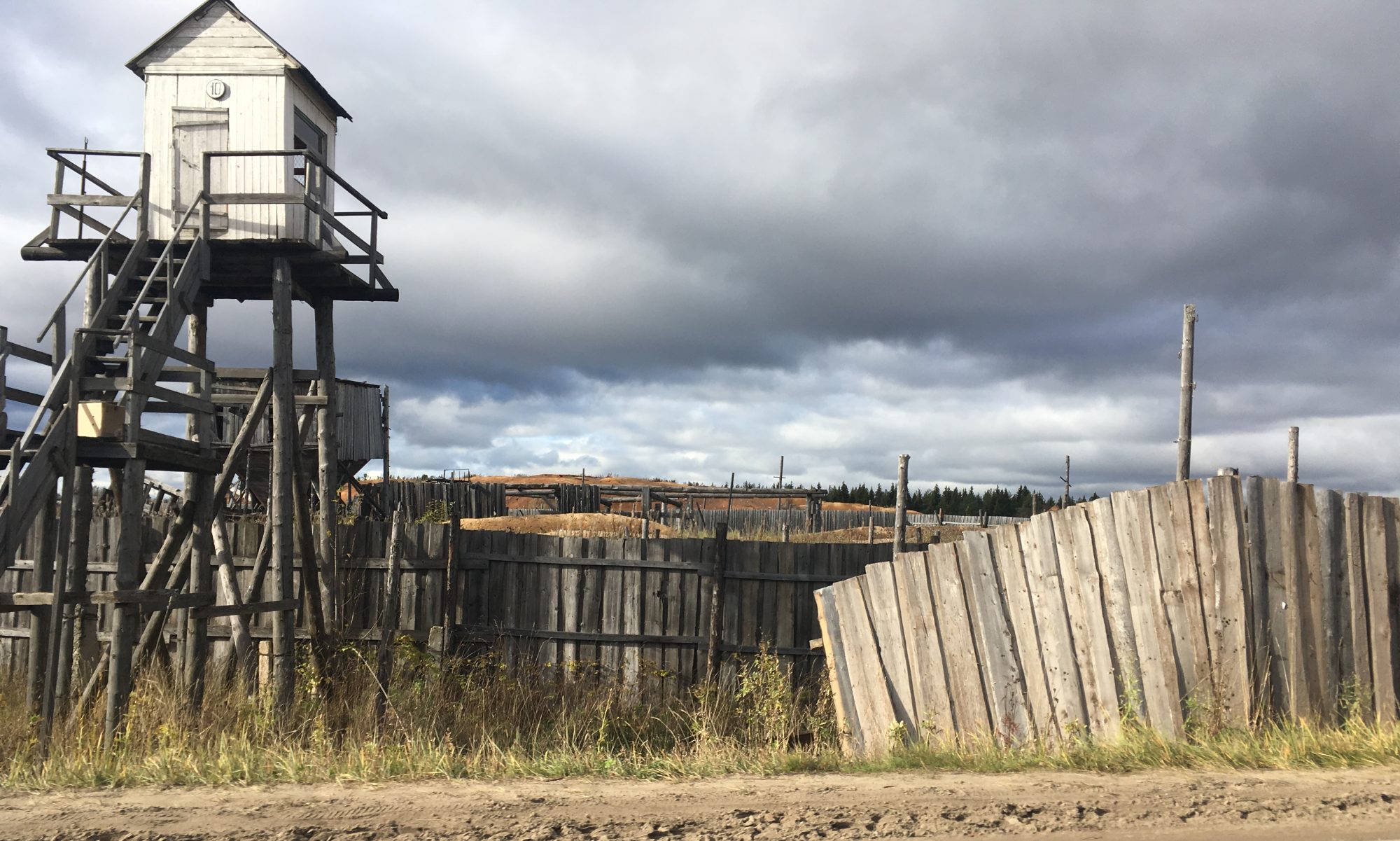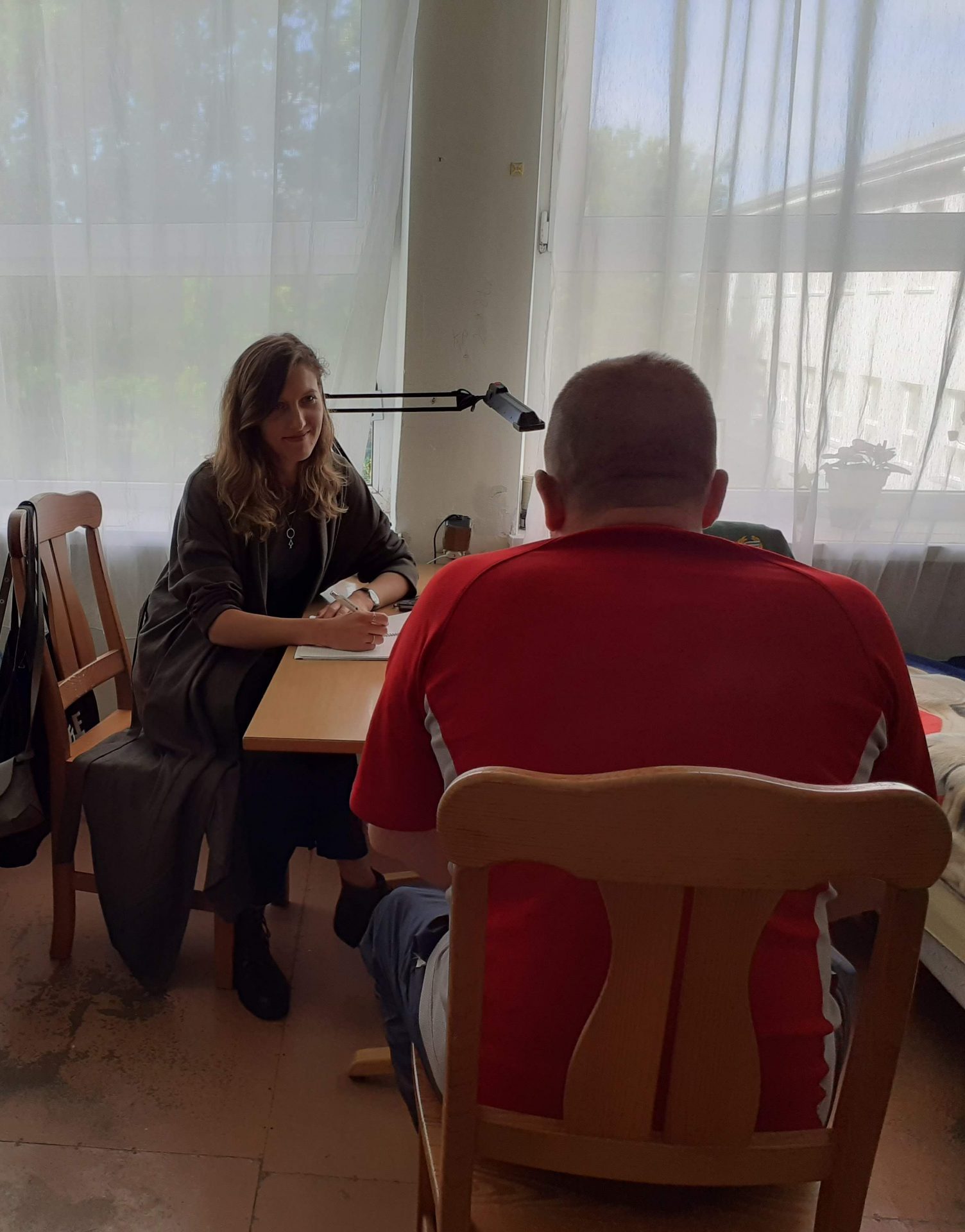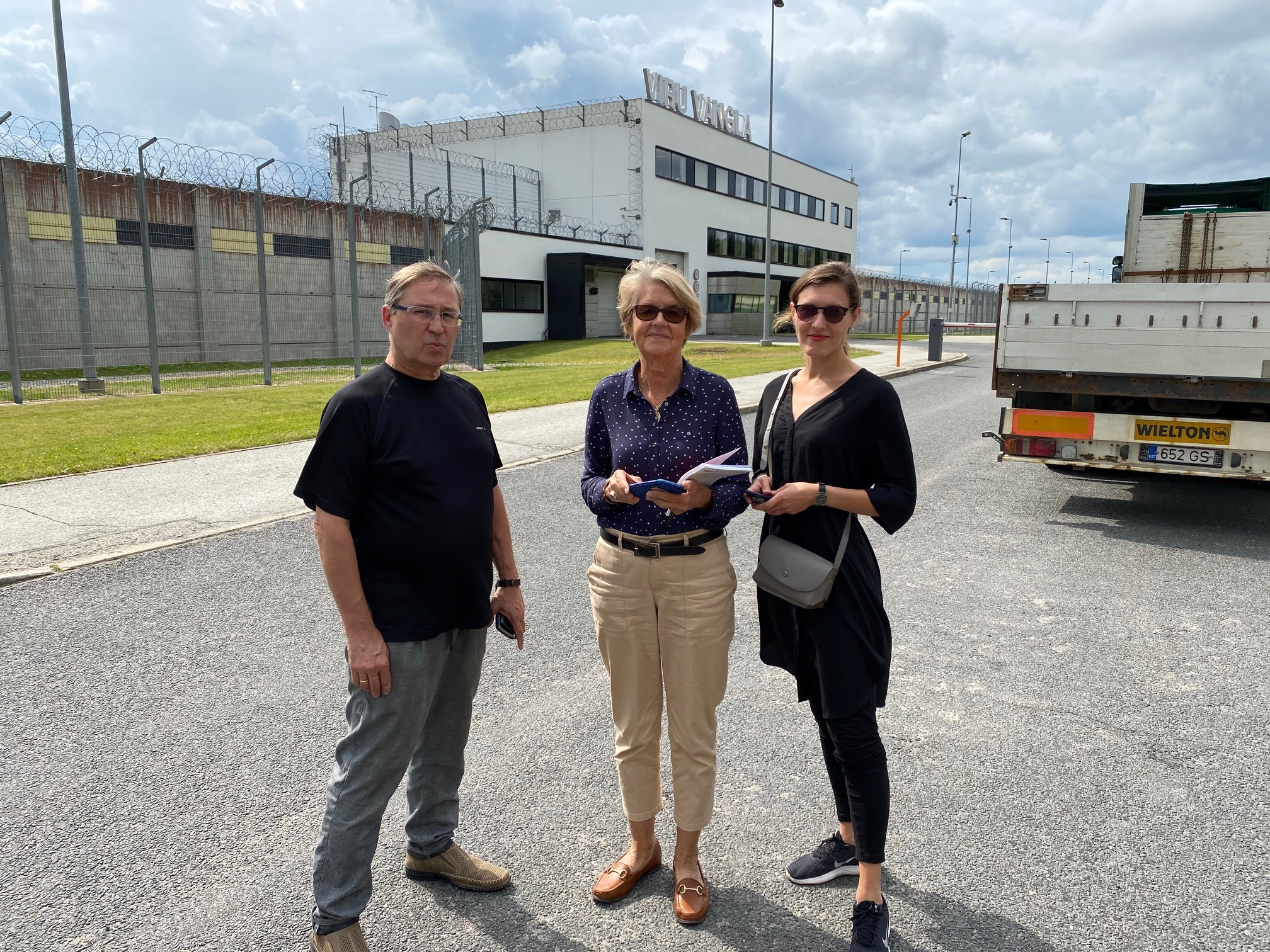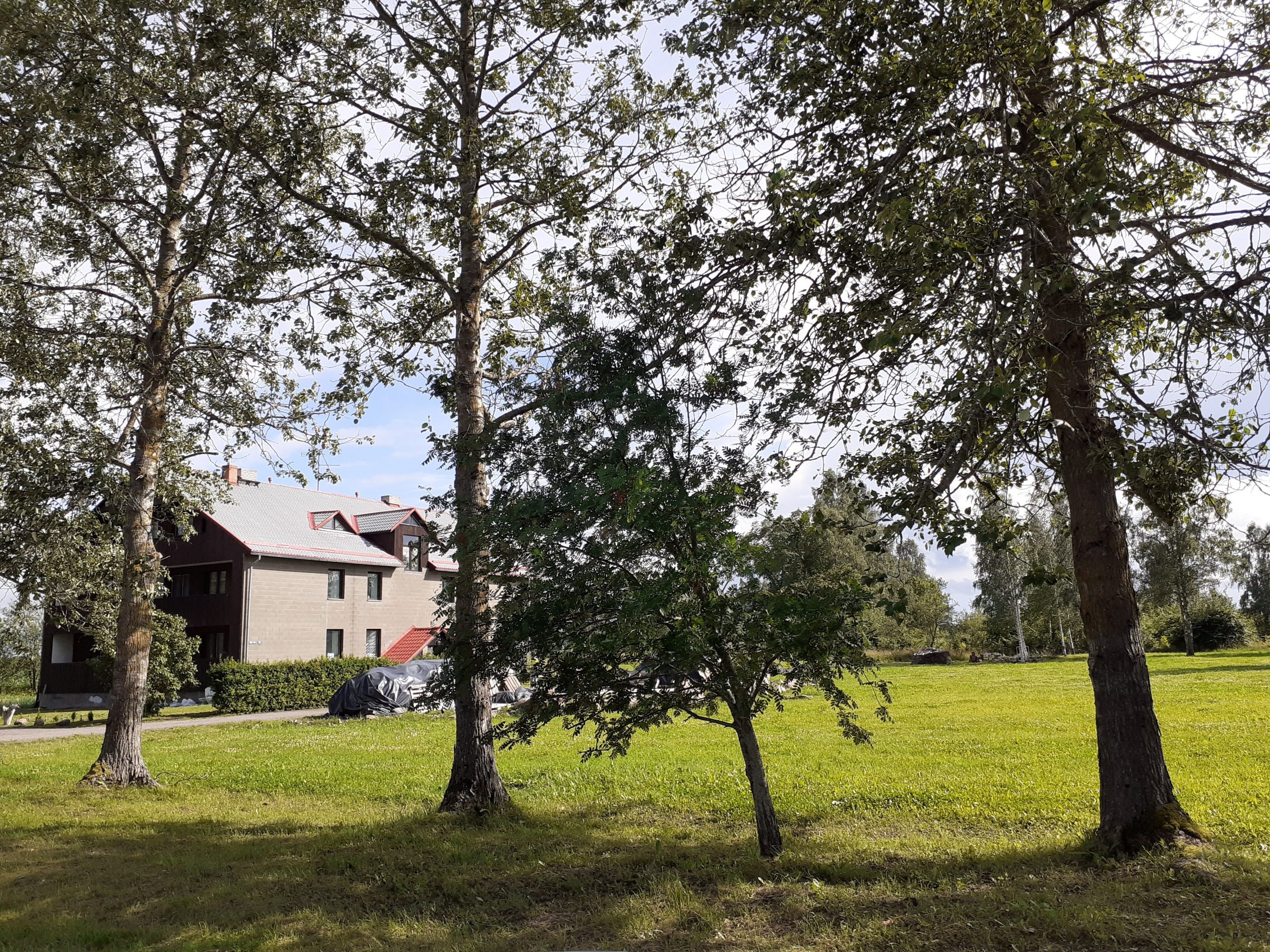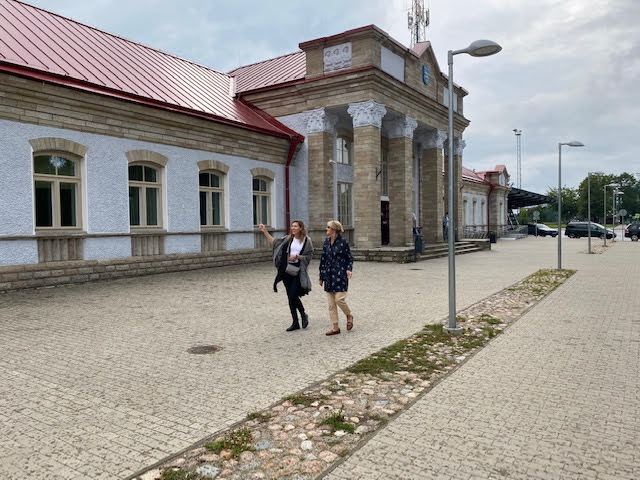The Research Coordinator of the project Dr Larisa Kangaspuro gave the presentation “Nordic-Russian cooperation for improvement social inclusion of foreign inmates”.
Caught in Russia’s Prison-Pandemic Nexus
BY DR. OLGA ZEVELEVA
In a new article in Riddle, an online journal on Russian affairs, Dr. Olga Zeveleva analyses the state of Russian prisons during the COVID-19 pandemic and compares it to prisons in other European countries. The publication is available in Russian and in English, and is partly reproduced on the project blog.
Fieldwork trip to Estonia
At the end of July, Project Director Judith Pallot and Postdoctoral Researcher Dr Olga Zeveleva launched fieldwork in Estonia. They spent time in Tallinn and in Jõhvi (Ida-Viru County in north-eastern Estonia), conducting pilot interviews with people who have been to Estonian and Soviet prisons between the 1960s and today, as well as focus groups and interviews with people who work on prisoner adaptation after release. The fieldwork was based predominantly at the New Generation rehabilitation centre in Jõhvi, thanks to Vadim Jerjomenko and Yury Mysnik, who run the center. Judith and Olga also visited the Patarei Prison in Tallinn, which was closed in 2002, and went to see Viru Vangla in Ida-Viru County, where fieldwork will hopefully continue in the future among current prisoners. This work would not have been possible without the help of Avo Üprus.
The fieldwork conducted during this trip has laid the foundations for further research in Estonia, which will focus mainly on interviews with former prisoners and prisoners, with special attention to linguistic and ethnic dimensions of prisoners’ experiences in the Soviet prison system, in the prison system of Estonia before the major recent prison reform, and in the newly reformed Estonian prison system. Work in Estonia will continue in autumn 2020.
The Veil of Secrecy: How did the Soviet government quell epidemics in prisons?
BY DR. MIKHAIL NAKONECHNYI
In a new blog post, historian Dr. Mikhail Nakonechnyi discusses the Soviet legacies that still plague Russia’s contemporary penitentiary services. He analyses the secretiveness of penal system officials, and compares how the USSR handled epidemics with how Russia is handling the current COVID-19 pandemic. He shows that current practices of secrecy about epidemiological data resemble not the Stalinist GULAG era, but rather Soviet prisons of the 1920s. Continue reading “The Veil of Secrecy: How did the Soviet government quell epidemics in prisons?”
Workshop 28.06-01.07.2020 for the project GULAGECHOES: Ethnicity in the Russian Prison System
The third workshop for the researchers involved in the GULAGECHOES project took place 29thJune-1st July 2020. It took place off-site at a venue in Finnish Karelia, which allowed the team to give its concentrated attention to reflect on the progress already made towards the project’s goals and to plan strategically for the year ahead. The meeting took place against the backdrop of the COVID-19 crisis that had brought a halt to fieldwork and data collection in early spring. The closure of international borders meant that some team members had to join by ZOOM, but the core researchers were able to attend in person. The first working day was devoted to the critical analysis of a series of key articles and books on ethnicity, race, and nationalism that had been circulated in advance. This gave us the framework for considering the interview and archival materials that the project has collected to date. The second day was devoted to methodological issues and we were fortunate to be joined by Dr Sofya Gavrilova, who gave a presentation on the ways in which Geographical Information System technologies can be used by the project to visualise our data. On the final morning we discussed the principal findings of the interviews that have been conducted in Russia, Uzbekistan and Georgia.


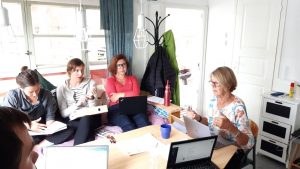
Muslim prisoners in Russia during the COVID-19 pandemic
BY DR. RUSTAMJON URINBOYEV
In a new blog post on prisons during the pandemic, Dr. Rustamjon Urinboyev turns to the experiences of Muslim prisoners in contemporary Russia. Drawing on his extensive fieldwork among migrants from Uzbekistan who have served prison sentences in the Russian Federation, he analyses the everyday practices of these transnational prisoners and their prison communities, and explains how these practices have changed since the onset of coronavirus-related lockdowns.
Continue reading “Muslim prisoners in Russia during the COVID-19 pandemic”
“Rise and Fall of Radical Organizations”: Seminar with Dr. Vera Mironova
On 12 June 2020, the GULAGECHOES team hosted a seminar during which invited speaker Dr. Vera Mironova presented her book manuscript “Rise and Fall of Radical Organizations. A 10 sq.m Prison Cell Experiment”, which is currently under review. You can read more about Mironova’s work on her website.
Streamed discussion event: “COVID-19 in Russia and Eurasia”, 11 June 2020
Please join our discussion event “COVID-19 in Russia and Eurasia”, which will be open to the public through online streaming from the University of Helsinki Think Corner on 11 June 2020 at 14.00-15.30. Olga Zeveleva will join University of Helsinki researchers Margarita Zavadskaya and Sherzod Eraliev to take a look at how the COVID-19 crisis has affected politics, the economy, and punishment in Russia and Eurasia over the past several months. Mikhail Nakonechnyi will chair the discussion. Audiences are invited to join the discussion via Twitter and send in their comments and questions using hashtag #coronainrussia. You can read more about the event here. A YouTube video of the full event is available here.
Prisons and the typhus/typhoid epidemic of 1908-1910: How the Russian Imperial penal system contained the outbreak
BY DR. MIKHAIL NAKONECHNYI
In a new blog post on the history of pandemics in prisons, Dr. Mikhail Nakonechnyi takes an in-depth look at the typhus and typhoid outbreak in the Russian Empire in 1908-1910. He analyses the range of measures the government employed to contain the epidemic, and compares these historical events with COVID-19 in present-day Russian prisons.
Penal Reform International publishes blog post by Dr. Costanza Curro
The NGO Penal Reform International (PRI) has published Dr. Costanza Curro’s analysis of Georgia’s COVID-19 prison system response. In this post, Costanza considers how exceptional pandemic-driven measures expose the contradictions of the prison itself. You can read her post here.
